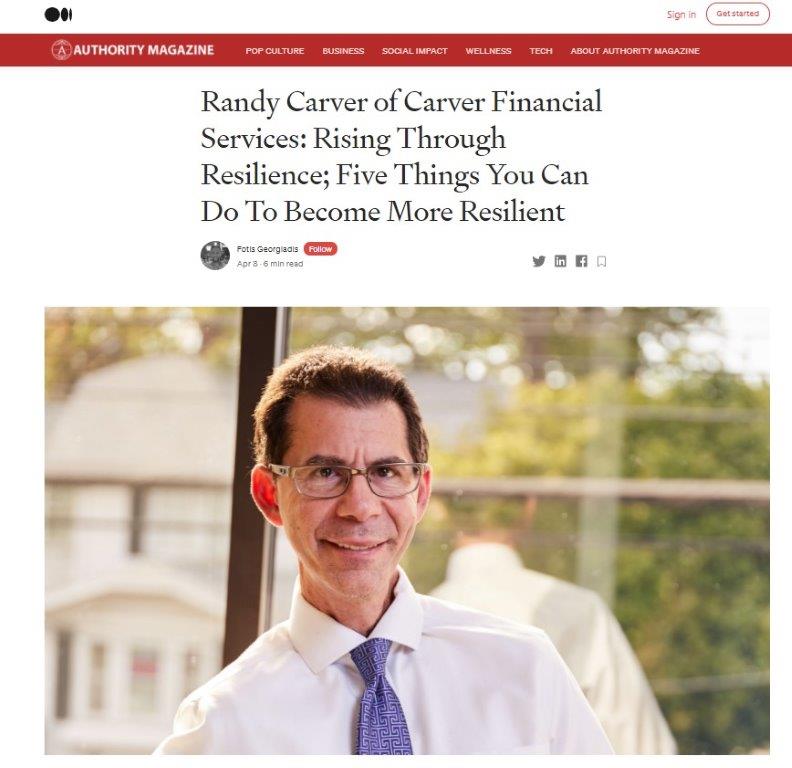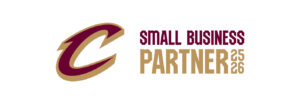
// by Paige Courtot
// by Paige Courtot

The greatest value of a great doctor, CPA, mechanic, financial advisor or other expert is not in treating symptoms or responding to problems but in preventing them from happening in the first place. Just as it’s better to never get sick than it is to treat an illness, it’s better to avoid an IRS audit than to have to respond to one.
Likewise, the true value of trusted financial advisors often is not in the problems we solve, but in the ones we prevent altogether.
If you treat your own medical conditions, do your own taxes or try to handle your own wealth management, you won’t have to pay anyone a fee. Yet the actual cost of doing these things yourself — in terms of time, effort, cost, and inadvertent mistakes — can be extremely high.
For example, if you do your own taxes and end up in an audit with a penalty, the expense (and stress) can take a much higher toll on you than paying a CPA to do a proper return. If you visit your medical team regularly, you might be able to prevent a major medical condition from arising, or at least your team is likely to discover a condition early and treat it. If you avoid seeing your doctor, though, because you want to save money up-front, it could cost you dearly later.
Likewise, a trusted financial advisor can help you minimize taxes, reduce volatility, decrease stress and help you grow wealth consistently. Just as preventive medicine is valuable, so is preventive financial management.
It’s hard to see the value of something that “didn’t happen” — the heart attack you never had or the huge market loss you avoided — because you planned ahead. But believe me, the value is priceless!
According to the 2020 Natixis Global Survey of Financial Professionals, some of the costliest mistakes that investors made in 2020 are as follows:
I have written about these common and costly mistakes before, as well as others. Working with our trusted team of advisors can help you avoid the fallout from mistakes like these.
When selecting a doctor, a CPA or an advisor, their technical expertise should simply be a given. The most important thing, beyond that, is how comfortable you feel with them. Also, does the person you are thinking about hiring work on his or her own or as part of a comprehensive team that can provide a long-term relationship for you; and ultimately future generations, in case that specialist retires, leaves the company or dies?
Your Advisor Team Can Help You Avoid Underperforming the Markets
Individual investors consistently underperform markets. Our team of trusted advisors can help you avoid this all too common, and often extremely costly, mistake.
Dalbar’s annual Quantitative Analysis of Investor Behavior study measures the effects of investor decisions over short and long-time frames. Dalbar has been conducting the study for 27 consecutive years. Since 1984, the study found that 70 percent of average investors underperformed during 10 key periods of market crisis when they took action, such as buying or selling instead of staying the course.
Dalbar’s 27th-annual study, released on March 31, 2021, revealed that many investors performed better during the pandemic than they typically do. However, they still underperformed the general market indices, even in 2020, largely because they panicked when things went down and chased when they were going up.
Looking at 10 periods of market drops between September 1986 and October 2008, the study found that eight of those periods would have produced better returns as soon as one year later if investors had just stayed the course, without taking any action.
A trusted advisor can help you avoid the continual issue of trying to time the market, which is futile, and resulting underperformance.
We have helped people build and transfer wealth for more than three decades. We have developed and refined a process focused on your personal vision. Ultimately, the true value we add is being here to listen to you, guide you, advise you and help you chart a course, especially through uncertain times. Often, the most important things we do prevent things that would have happened if you had not sought help from us.
Yes, your doctors and your trusted financial advisors will help you try to fix issues that come up, but I encourage you to visit us regularly and follow our guidance, to put you in the best position possible to avoid problems. Our team is a valuable resource to provide solutions, answer questions and, ultimately, help to make your life better.
Being proactive is always wiser than being reactive. Understanding what we can and cannot control, and planning accordingly, are the keys to success. The value a trusted team of advisors brings to you goes far beyond peace of mind. The most important thing they may do is the thing that never happens.
Randy Carver, CRPC®, CDFA®, is the president and founder of Carver Financial Services, Inc., and is also a registered principal with Raymond James Financial Services, Inc. Randy has more than 32 years of experience in the financial services business. Carver Financial Services, Inc. was established in 1990 and is one of the largest independent financial services offices in the country, managing $2 billion in assets for clients globally, as of April 2021. Randy and his team, work with individuals who are in financial transition as a result of divorce, retirement, or the sale of a business. You may reach Randy at randy.carver@raymondjames.com.
________
This information does not purport to be a complete description of the securities, markets or developments referred to in this material. The information has been obtained from sources considered to be reliable, but we do not guarantee that the foregoing material is accurate or complete. Any information is not a complete summary or statement of all available data necessary for making an investment decision and does not constitute a recommendation. Any opinions are those of Randy Carver and not necessarily those of RJFS or Raymond James. Expressions of opinion are as of this date and are subject to change without notice. Links are being provided for information purposes only. Raymond James is not affiliated with and does not endorse, authorize or sponsor any of the listed websites or their respective sponsors.
Investing involves risk and you may incur a profit or loss regardless of the strategy selected, including diversification and asset allocation. Raymond James and its advisors do not offer tax or legal advice. You should discuss any tax or legal matters with the appropriate professional.
// by Paige Courtot
// by Paige Courtot
Morning radio personality Dave Akerly from Fox News affiliate 1320 AM WILS, interviews Nick Wearsch regarding his insight on those 24-35 year-olds looking to spend nearly half of their March 2021 Covid-19 relief stimulus check on stocks.
// by Paige Courtot

March 15, 2021 – Barron’s Magazine again named Randy Carver as one of the top advisors in the Nation and one of Ohio’s top five financial advisors. Randy has been recognized by Barron’s every year since 2008.
Rankings are based on data provided by the nation’s 4,000 most productive advisors. Factors included in the rankings: assets under management, revenue produced for the firm, regulatory record, quality of practice, and philanthropic work. Investment performance isn’t an explicit component because not all advisors have audited results and because performance figures often are influenced more by clients’ risk tolerance than by an advisor’s investment-picking abilities.
To see the full listing https://www.barrons.com/report/top-financial-advisors/1000/2021.
Barron’s Top 1,200 Financial Advisors, March 2021. Barron’s is a registered trademark of Dow Jones & Company, L.P. All rights reserved. The rankings are based on data provided by over 5,000 individual advisors and their firms and include qualitative and quantitative criteria. Factors included in the rankings: assets under management, revenue produced for the firm, regulatory record, quality of practice and philanthropic work. Investment performance is not an explicit component because not all advisors have audited results and because performance figures often are influenced more by clients’ risk tolerance than by an advisor’s investment picking abilities. The ranking may not be representative of any one client’s experience, is not an endorsement, and is not indicative of advisor’s future performance. Neither Raymond James nor any of its financial advisors pay a fee in exchange for this award/rating. Barron’s is not affiliated with Raymond James.
// by Paige Courtot

The Merriam-Webster Dictionary defines volatility as “a tendency to change quickly and unpredictably.” Investopedia defines volatility as “a statistical measure of the dispersion of returns for a given security or market index. In most cases, the higher the volatility, the riskier the security.”
Many people think volatility is when markets or portfolio values go down. But volatility can also refer to when those go up. The market will always fluctuate, and history tells us that it can recover. For example, after the S&P 500 bottomed out in March 2020 following the “Corona Crash,” it then went up nearly 80 percent. And other than a brief downturn in September, the rise went on more or less unabated in terms of corrections.
No matter how we define it, though, volatility can be our friend — something investors can welcome instead of fearing.
With a properly managed, monitored and implemented financial plan, volatility can enhance returns, reduce income tax and ultimately provide more stability to the portfolio. This sounds counterintuitive, right? But it’s true!
Here are three ways we can benefit from volatility.
Volatility with individual investments can provide the opportunity for tax swaps. A tax swap is when you sell one investment with capital losses and replace it with a similar, but not identical, investment. You can move out of an investment to try to book a tax loss while immediately reinvesting into the same underlying group of or type of investments. This can be true of either equities (stocks) or fixed income (bonds).
People who simply buy and hold bonds are missing out on the potential benefits of tax swaps. Because of volatility, a buy-and-hold strategy often results in lower returns than a strategically managed portfolio. An experienced advisor can guide you in optimizing your returns.
Does this sound illegal to you? If so, you might be thinking of a wash sale,” which is illegal. A wash sale occurs when an investor sells a security at a loss but then purchases the same or a substantially similar security within 30 days of the sale. The IRS prohibits this! You cannot sell securities at a loss so you can get a tax benefit and then buy the same stock or bond back right away. But a tax swap is legal. That means you invest in a company that’s in the same sector as the investment you sold and use many of the same trading methods.
Volatility also can provide you with the opportunity to rebalance from equity to fixed income, or vice versa. Although it is impossible to time markets, rebalancing is a way to buy low and sell high without actually doing so. We take a systematic approach to rebalancing, which helps you maintain an asset allocation for your financial needs, so you can achieve a better rate of return over time for any given level of risk. This can provide more stability in your portfolio.
The key is to avoid trying to predict the future or time the market. When the markets go up or down, stay focused on your long-term vision and plan. Take advantage of what’s happening in the market within the context of your overall goals and plan. Ultimately, the only return that is important is the net return — the return on your investment after fees, expenses and income tax.
Our team has developed and refined our Personal Vision Planning ® process over the past 30 years for uncertain times like today. This process provides you with a customized wealth-management plan based on you and your long-term vision.
The pace of change with technology, and ultimately the markets, continues to accelerate. Our team uses cutting-edge technology to monitor and rebalance portfolios. We believe technology should not be a replacement for an experienced advisor who understands what you are trying to accomplish. Instead, technology is a tool and is just one part of the arsenal an advisor or team brings to the table.
Please contact me personally, or any member of our team, if you would like to discuss your portfolio, if you have questions or if we can otherwise be of service. As always, your vision is our priority.
________
Randy Carver, CRPC®, CDFA®, is the president and founder of Carver Financial Services, Inc., and is also a registered principal with Raymond James Financial Services, Inc. Randy has more than 32 years of experience in the financial services business. Carver Financial Services, Inc. was established in 1990 and is one of the largest independent financial services offices in the country, managing $2 billion in assets for clients globally, as of February 2021. Randy and his team, work with individuals who are in financial transition as a result of divorce, retirement, or the sale of a business. You may reach Randy at randy.carver@raymondjames.com.
________
This information does not purport to be a complete description of the securities, markets or developments referred to in this material. The information has been obtained from sources considered to be reliable, but we do not guarantee that the foregoing material is accurate or complete. Any information is not a complete summary or statement of all available data necessary for making an investment decision and does not constitute a recommendation. Any opinions are those of Randy Carver and not necessarily those of RJFS or Raymond James. Expressions of opinion are as of this date and are subject to change without notice. Links are being provided for information purposes only. Raymond James is not affiliated with and does not endorse, authorize or sponsor any of the listed websites or their respective sponsors.
Investing involves risk and you may incur a profit or loss regardless of strategy selected, including diversification and asset allocation. Raymond James and its advisors do not offer tax or legal advice. You should discuss any tax or legal matters with the appropriate professional.
// by Paige Courtot
// by Paige Courtot
// by Paige Courtot

Two emergency relief bills passed in 2020 in response to the COVID-19 pandemic will make this an unusual tax season for many taxpayers. The Coronavirus Aid, Relief, and Economic Security (CARES) Act was passed in March, and a second relief package was attached to the Consolidated Appropriations Act, 2021, in December.
The federal government relied on the tax system to deliver financial lifelines to struggling households, boost consumer spending, and help speed the economic recovery.
The following provisions may affect many households when they file their personal tax returns for 2020. You might consult a tax professional who can further explain the relevant changes and recommend strategies to help reduce your tax liability for 2021.
Most U.S. households received two Economic Impact Payments (EIPs) from the federal government in 2020. They are not taxable because technically they are advances on a refundable credit against 2020 income taxes.
The CARES Act provided a Recovery Rebate Credit of $1,200 ($2,400 for married joint filers) plus $500 for each qualifying child under age 17. The second bill provided another $600 per eligible family member.
Any individual who has a Social Security number and is not a dependent generally qualifies for the payments, up to certain income limits. The amounts are reduced for those with adjusted gross incomes (AGIs) exceeding $75,000 ($150,000 for joint filers and $112,500 for heads of household) and phase out completely at AGIs of $99,000 ($198,000 for joint filers and $112,500 for heads of household).
In order for the money to be delivered quickly, eligibility was based on 2019 income tax returns (or 2018 if a 2019 return had not been filed). Eligible taxpayers who did not receive two full payments, possibly due to errors or processing delays, may claim the money as a Recovery Rebate Credit on their 2020 tax return. Households that reported a lower AGI in 2020 (or added a dependent) might be eligible for additional funds. To calculate the credit, filers will need to know the amounts of any payments they already received. The credit amount will increase the refund or decrease the tax owed, dollar for dollar.
Taxpayers who received two full payments don’t need to fill out any additional information on their tax returns. The IRS will begin accepting 2020 tax returns on February 12, 2021; filing electronically usually results in a faster refund.
Another measure in the CARES Act allowed IRA owners and employer-plan participants who were adversely affected by COVID-19 to withdraw up to $100,000 of their vested account balance in 2020 without having to pay the 10% tax penalty (25% for SIMPLE IRAs) that normally applies prior to age 59½.
Still, withdrawals from tax-deferred retirement accounts are typically taxed as ordinary income in the year of the distribution. To help manage the tax liability, qualified individuals can choose to spread the income from a coronavirus-related distribution (CRD) equally over three years or report it in full for the 2020 tax year, with up to three years to reinvest the money in an eligible employer plan or an IRA.
Taxpayers who elect to report income over three years and then recontribute amounts greater than the amount reported in a given year may “carry forward” the excess contributions to next year’s tax return. Taxpayers who recontribute amounts after paying taxes on reported CRD income can file amended returns to recoup the payments.
Qualified individuals whose plans did not adopt CRD provisions may choose to categorize other types of distributions — including those normally considered required minimum distributions — as CRDs on their tax returns (up to the $100,000 limit).
The special rules for charitable gift deductions enacted for 2020 have been extended through 2021. For those who itemize deductions, the limit on the charitable gift deduction increased to 100% of AGI for direct cash gifts to public charities. For nonitemizers, a new $300 charitable deduction for 2020 and 2021 direct cash gifts to public charities is available. For joint filers, this deduction increases to $600 for 2021 cash gifts to charitable organizations.
The floor for deducting medical expenses has been permanently lowered to 7.5% of AGI. (It was scheduled to increase to 10% in 2021.) And starting in 2021, there is no deduction for qualified tuition and related expenses. Instead, the modified adjusted gross income (MAGI) phaseout range for the Lifetime Learning credit was increased to be the same as the phaseout range for the American Opportunity credit ($80,000 to $90,000 for single filers; $160,000 to 180,000 for joint filers).
A temporary provision that allows taxpayers to exclude discharged debt for a qualified principal residence from gross income was extended through 2025, though the limit has been reduced from $2 million to $750,000. Also, through 2025, employers can pay up to $5,250 annually toward employees’ student loans as a tax-free employee benefit.
The number of unemployed workers spiked above 22 million in March 2020, and more than 9 million people were still out of work at the end of the year.1 Both relief bills expanded unemployment benefits and provided them to many workers who normally are not eligible (including the self-employed, independent contractors, and part-time workers).
Unemployment benefits, which sustained many families impacted by the pandemic, are considered taxable income, and many recipients may not have correctly withheld taxes from their 2020 payments. Avoiding a surprise tax bill typically requires opting into a 10% withholding rate and, in some cases, paying additional quarterly taxes during the year.
Last year was unpredictable, and your financial situation may have been far from normal. You should file your 2020 tax return by the April 15 deadline, even if you are worried that it’s going to show a balance due.
Being up-to-date on filing is generally required to pursue a payment agreement with the IRS. If you owe $50,000 or less, you may even be able to apply online for a short-term extension (up to 120 days) or a longer payment agreement. Paying as much as you can afford can help limit penalties and interest that accrue on unpaid amounts.
1) U.S. Bureau of Labor Statistics, 2021
Securities offered through Raymond James Financial Services Inc. Member FINRA/SIPC. Investment advisory services offered through Raymond James Advisers, Inc. Carver Financial Services, Inc. is not a registered broker dealer and is independent of Raymond James. The information contained in this Client Memo does not purport to be a complete description of securities, markets, or developments referred to in this material. The information developed by an independent third party has been obtained from sources considered reliable, but we do not guarantee that the foregoing is accurate or complete. No tax or legal advice is given or intended, you should discuss any tax or legal matter with the appropriate professional.
Past performance does not guarantee future results. Any information is not a complete summary or statement of all available data necessary for making an investment decision. You should discuss any tax or legal matters with the appropriate professional. Past performance does not guarantee future results. Carver Financial Services is not a registered broker/dealer and is independent of Raymond James Financial Services, Inc., member FINRA/SIPC.
Prepared by Broadridge Investor Communication Solutions, Inc. Copyright 2021.
// by Paige Courtot


OUR OFFICES
7473 Center St.
Mentor, OH 44060
Phone: 440.974.0808
Toll-Free: 800.627.7279
Email: carverfinancialservices@ raymondjames.com

